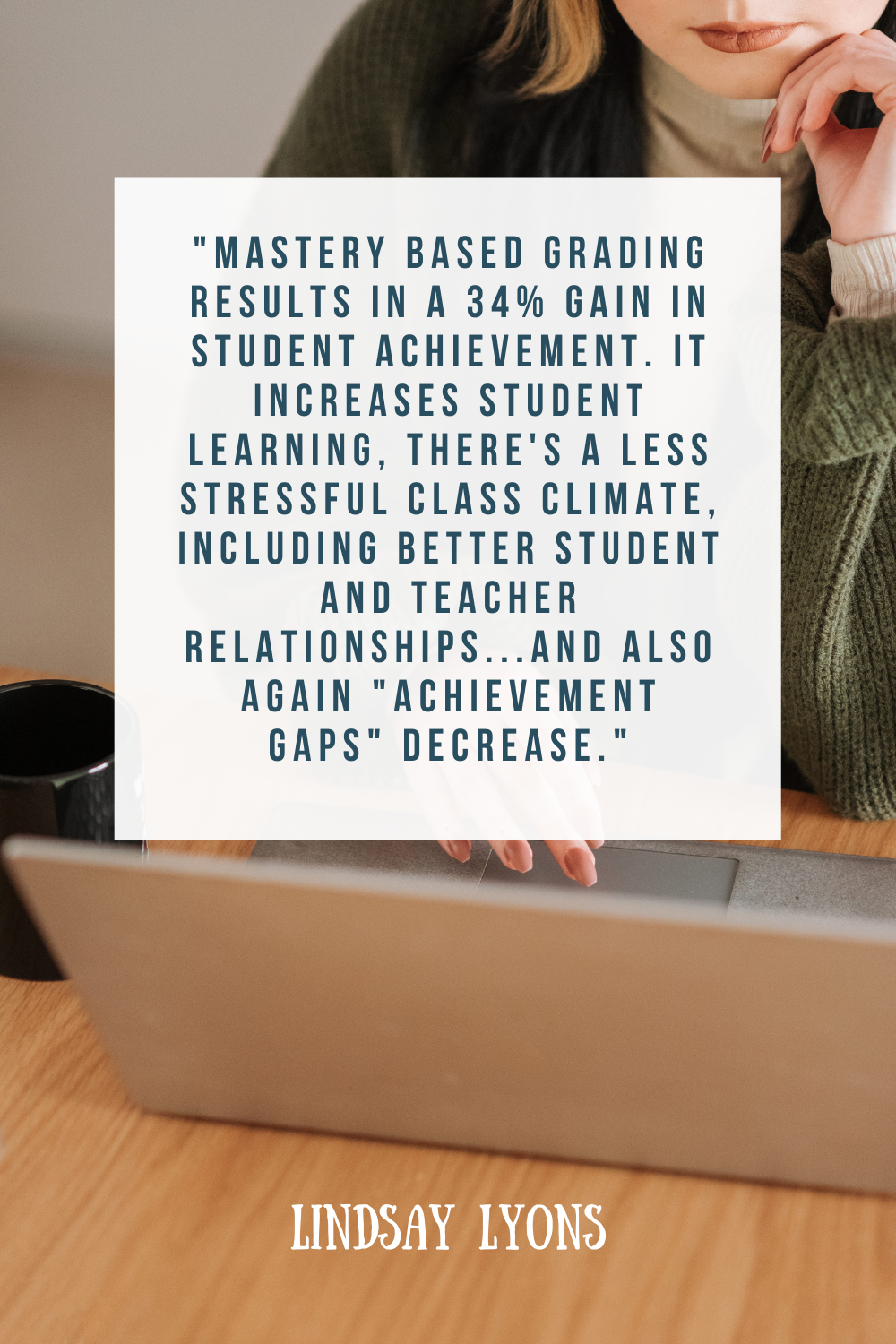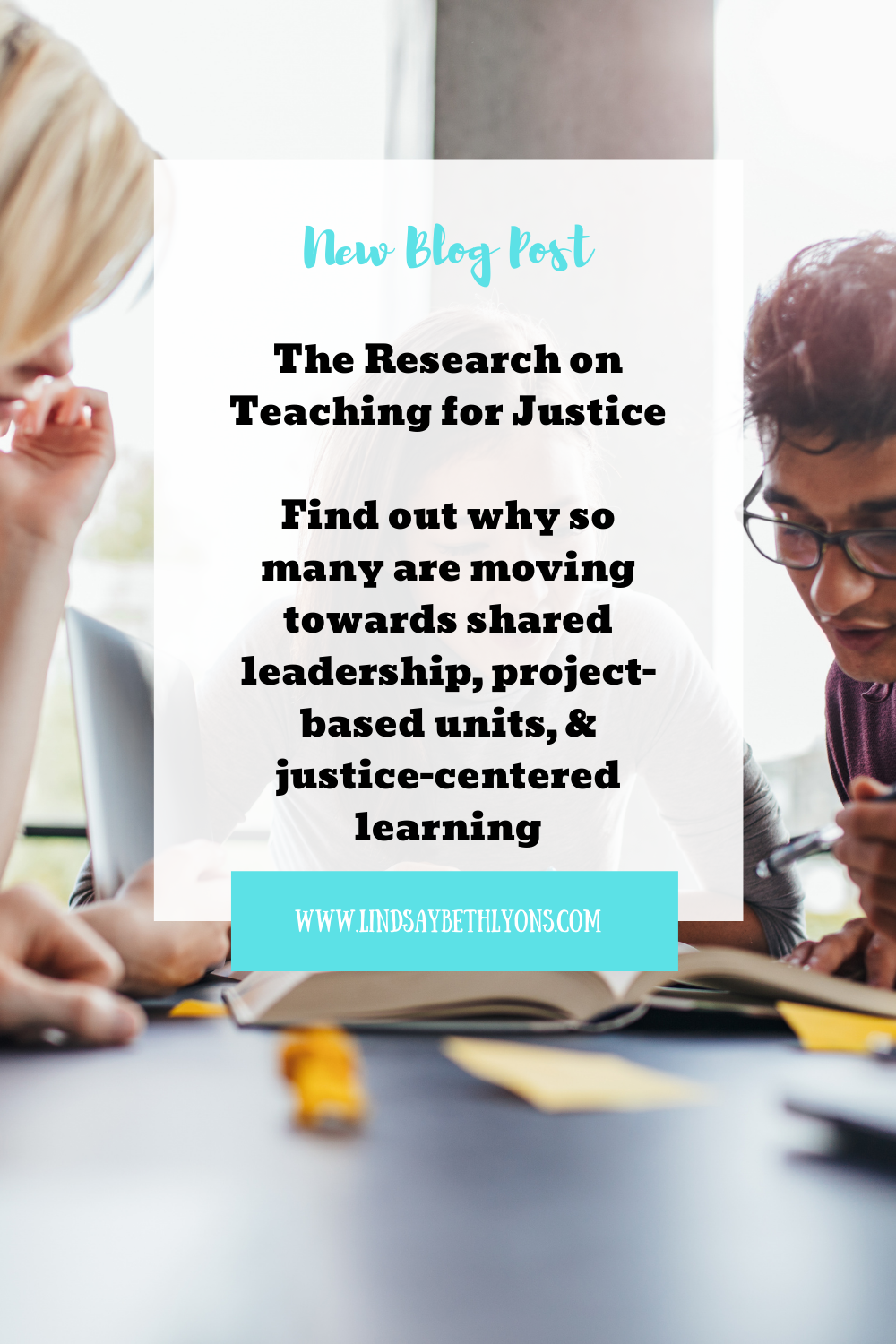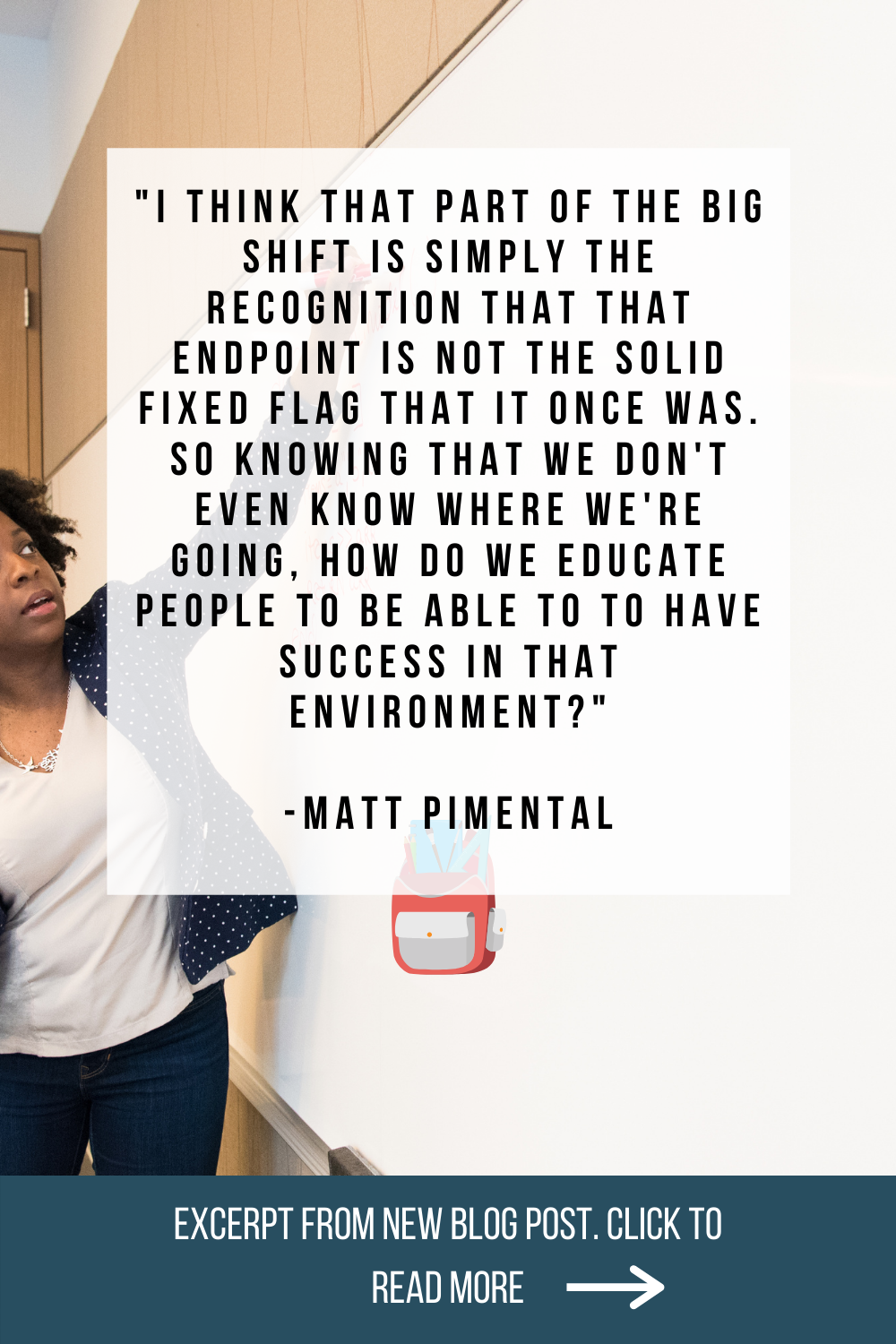|
Listen to the episode using the above player or by clicking the link to your preferred podcast platform below: My dream for students Imagine if we could help students learn how to identify the injustices around them. One of my dreams for students is for them to be able to call out these injustices that come up time and time again. I want to be able to develop curriculum that enables them to create projects grounded in justice. These projects go beyond the grade. They should be heard by authentic audiences in the community. They bring inspiration and give students a sense of ownership in taking on these issues directly and creatively. When we apply mastery grading to projects over traditional ones, there is less room for bias and more for considering what skills are being demonstrated through these projects. What does the research say? The research on student-centered learning is revealing. This makes learning personalized to the individual needs and gives them power to be part of the creation of curriculum. Students get to progress to the next level when they’ve nailed down the concepts, not when a teacher says so. Here’s what students have shown from the research:
In addition, having more student voice has shown to greatly improve student-teacher relationships and student-student relationships. Students increase their critical awareness of the world and they naturally gravitate towards activism. This next one is so cool—when educators share power with their students, more power is created. This is known as cascading vitality. Usually, people assume the opposite. They assume that sharing power will mean chaos and that no one has enough. But I want you to reframe that mindset. Student voice engages and heals We talk about the importance of trauma informed teaching in school. There’s a reason that we need to change the pedagogy and methods with students who have been through trauma. Trauma affects the brain and impacts a child’s ability to learn. Besides SEL, students who have trauma can also benefit from this shared leadership model. It gives students control over themselves and how they learn which counteracts that feeling of powerlessness that some have after trauma. The process of restoring mental wellness and going beyond healing is called Post Traumatic Growth. Researchers find that the right environment for Post Traumatic Growth is one that involves a way to cope and regain agency. Justice-centered units and shared power are opportunities to to cultivate that. For many schools, there is a lack of connection and a lack of engagement in classrooms. Students that don’t feel like they are valued as an individual may feel this way because the traditional curriculum doesn’t reflect their identities or make room for their ideas. Our world needs young people to fight for justice, and the research tells us even having more class discussions increases students' future civic engagement. Next, I want to discuss why project based learning is impactful. In project based learning (PBL), you start with a challenging question or issue. This problem/question is one that students address throughout the unit. The summative assessment is a “public product” with an authentic audience beyond the teacher, and throughout the unit, students have multiple opportunities for critique and revision of their project. Classes that use PBL have been studied and found to improve students’ attitudes on learning, engagement, self-reliance, and overall attendance. Bonus finding: PBL teachers are happier than non-PBL teachers! “PBL also increases content retention and deepens students’’ understanding. Students in PBL actually do better on standardized tests than students not in PBL classrooms.” Reflecting on power and grading bias When teaching for justice, we have the opportunity to develop student identity and criticality which often doesn’t get the attention it deserves. When planning for lessons, take it from Dr. Gholdy Muhammad and ask yourself how your lesson will help students learn something about themselves or others. Sylvia Duckworth has something called the wheel of power/privilege. It’s a colorful and complex wheel that shows our proximity to power with all of our different identities. You can use this as an example to also ask yourself how will my lesson get students to think about power, equity, and ways we can disrupt oppression? Another aspect of teaching for justice is preventing grading bias. The data shows a clear bias in the practice of assigning a grade to students. Even when we are unconscious of it or aim to be objective, it’s too easy to judge the student rather than the quality of the student’s work or learning. The research on "mastery-based" or competency-based" grading, however, shows this approach to be more accurate and equitable. “Mastery based grading results in a 34% gain in student achievements. It increases student learning...and “achievement gaps” decrease.” Mastery-based grading really stands out because it doesn’t punish students for coming from past schools that haven’t prepared them to succeed. Usually, Black, Brown, and Indigenous students are the ones who are affected by strict grading because it doesn’t account for the gap or differences between students coming from advantaged schools and students coming from schools with less funding, crowded classrooms, and teachers that didn’t have the tools they needed. It’s all about giving all students a chance to practice the same skills and show progress/mastery in a variety of ways. I hope all of the research on these topics have inspired you to dive deeper and bring more equity into your class. If you want a simple resource that ties all of this together, be sure to click below to get my “Equity 1 pager”. For more, check out my Curriculum Boot Camp course or the “Just the Protocols” module to create your own project-based units grounded in justice in no time at all! Until next time leaders, continue to think big, act brave, and be your best self.
0 Comments
Leave a Reply. |
Details
For transcripts of episodes (and the option to search for terms in transcripts), click here!
Time for Teachership is now a proud member of the...AuthorLindsay Lyons (she/her) is an educational justice coach who works with teachers and school leaders to inspire educational innovation for racial and gender justice, design curricula grounded in student voice, and build capacity for shared leadership. Lindsay taught in NYC public schools, holds a PhD in Leadership and Change, and is the founder of the educational blog and podcast, Time for Teachership. Archives
May 2024
Categories |




 RSS Feed
RSS Feed